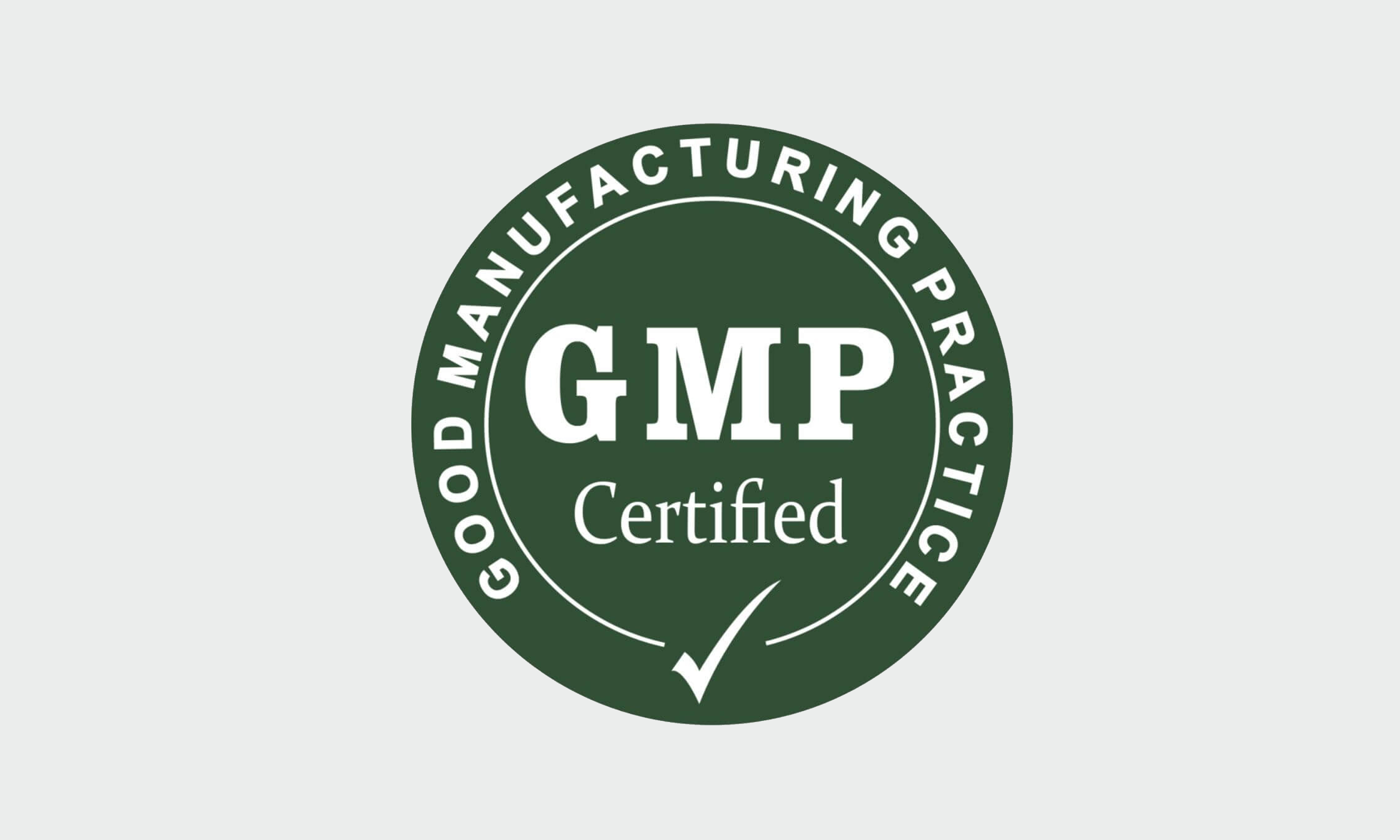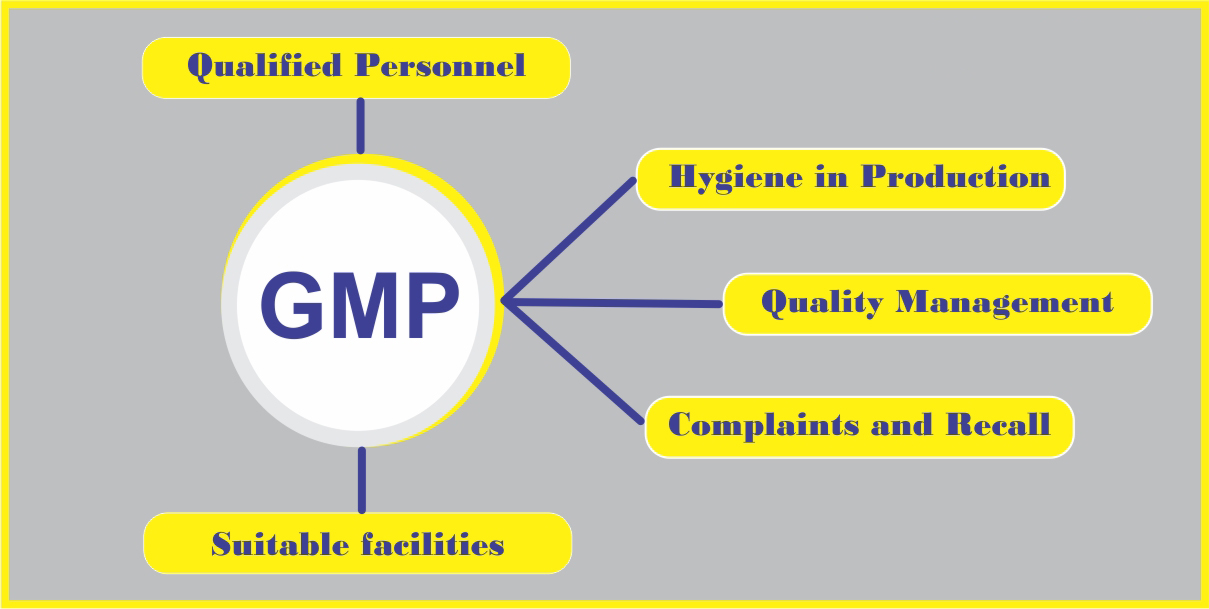GMP Certification

Have Queries? Talk to CECL Experts

Have Queries? Talk to CECL Experts
We deal in GMP Certification of various Accreditation Bodies. Get in touch with the CECL Advisors to help you out procure the best GMP Compliance Certificate easily.
E-mail: info@complianceease.in | +91-9773646999
 GMP: Good manufacturing practices (GMP) are the practices required in order to conform to the guidelines recommended by agencies that control the authorization and licensing of the manufacture and sale of food and beverages, cosmetics, pharmaceutical products, dietary supplements, and medical devices.
GMP: Good manufacturing practices (GMP) are the practices required in order to conform to the guidelines recommended by agencies that control the authorization and licensing of the manufacture and sale of food and beverages, cosmetics, pharmaceutical products, dietary supplements, and medical devices. Getting GMP certificate means that your Organization has taken all the precautionary measures to continual licensing of the manufacture and sale of products that you are coming up with in the market.
Getting GMP certificate means that your Organization has taken all the precautionary measures to continual licensing of the manufacture and sale of products that you are coming up with in the market. GMP Certificate is precisely a Compliance Certificate acting as a symbol of trust for your customers and it enhances the image of your organization in the business market of your products. Also known as WHO-GMP Certificate.
GMP Certificate is precisely a Compliance Certificate acting as a symbol of trust for your customers and it enhances the image of your organization in the business market of your products. Also known as WHO-GMP Certificate.GMP refers to the Good Manufacturing Practice which have the force of law, require that manufacturers, processors, and packagers of drugs, medical devices, some food, and blood take proactive steps to ensure that their products are safe, pure, and effective. GMP regulations require a quality approach to manufacturing, enabling companies to minimize or eliminate instances of contamination, mix-ups, and errors. This in turn, protects the consumer from purchasing a product which is not effective or even dangerous.

 Hygiene: Pharmaceutical manufacturing facility must maintain a clean and hygienic manufacturing area.
Hygiene: Pharmaceutical manufacturing facility must maintain a clean and hygienic manufacturing area. Controlled environmental conditions in order to prevent cross contamination of drug product from other drug or extraneous particulate matter which may render the drug product unsafe for human consumption.
Controlled environmental conditions in order to prevent cross contamination of drug product from other drug or extraneous particulate matter which may render the drug product unsafe for human consumption. Manufacturing processes are clearly defined and controlled. All critical processes are validated to ensure consistency and compliance with specifications.
Manufacturing processes are clearly defined and controlled. All critical processes are validated to ensure consistency and compliance with specifications. Manufacturing processes are controlled, and any changes to the process are evaluated. Changes that have an impact on the quality of the drug are validated as necessary.
Manufacturing processes are controlled, and any changes to the process are evaluated. Changes that have an impact on the quality of the drug are validated as necessary. Instructions and procedures are written in clear and unambiguous language. (Good Documentation Practices)
Instructions and procedures are written in clear and unambiguous language. (Good Documentation Practices) Operators are trained to carry out and document procedures.
Operators are trained to carry out and document procedures. Records are made, manually or by instruments, during manufacture that demonstrate that all the steps required by the defined procedures and instructions were in fact taken and that the quantity and quality of the drug was as expected. Deviations are investigated and documented.
Records are made, manually or by instruments, during manufacture that demonstrate that all the steps required by the defined procedures and instructions were in fact taken and that the quantity and quality of the drug was as expected. Deviations are investigated and documented. Records of manufacture (including distribution) that enable the complete history of a batch to be traced are retained in a comprehensible and accessible form.
Records of manufacture (including distribution) that enable the complete history of a batch to be traced are retained in a comprehensible and accessible form. The distribution of the drugs minimizes any risk to their quality.
The distribution of the drugs minimizes any risk to their quality. A system is available for recalling any batch of drug from sale or supply.
A system is available for recalling any batch of drug from sale or supply. Complaints about marketed drugs are examined, the causes of quality defects are investigated, and appropriate measures are taken with respect to the defective drugs and to prevent recurrence.
Complaints about marketed drugs are examined, the causes of quality defects are investigated, and appropriate measures are taken with respect to the defective drugs and to prevent recurrence.Note: It is the responsibility of the organization to ensure that claims of conformity to GMP Certification with respect to health, safety, environmental protection is ensured.
For processing GMP Certification will differ from one organization to another. However, for your understanding we have listed below the common required documents:
 Registration Certificate
Registration Certificate Office Address Proof
Office Address Proof Scope of the work
Scope of the work GST Certificate
GST Certificate Cancelled Cheque
Cancelled Cheque Bills raised/Invoice paid
Bills raised/Invoice paid  Basic KYC of Director/Partner/Prop.
Basic KYC of Director/Partner/Prop. Type of Products looking for GMP
Type of Products looking for GMP
There are a significant number of advantages of GMP for the manufacturer and seller. In particular:
 GMP regulations address issues including recordkeeping, personnel qualifications, sanitation, cleanliness, equipment verification, process validation, and complaint handling.
GMP regulations address issues including recordkeeping, personnel qualifications, sanitation, cleanliness, equipment verification, process validation, and complaint handling. Most GMP requirements are very general and open-ended, allowing each manufacturer to decide individually how to best implement the necessary controls.
Most GMP requirements are very general and open-ended, allowing each manufacturer to decide individually how to best implement the necessary controls. This provides much flexibility, but also requires that the manufacturer interpret the requirements in a manner which makes sense for each individual business.
This provides much flexibility, but also requires that the manufacturer interpret the requirements in a manner which makes sense for each individual business.The CECL Business Advisors can guide you through step-by-step procedure in understanding how GMP can be beneficial for your organization and how you can get GMP Compliance Certificate for your business in Organizational commitment towards right manufacturing of products with high standard.